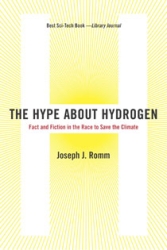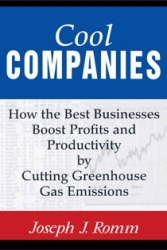Joseph J. Romm
Dr. Joseph Romm was Principal Deputy and then Acting Assistant Secretary of Energy Efficiency and Renewable Energy in the mid-1990s, overseeing a $1 billion budget on climate solutions for transportation, buildings, and industry, including hydrogen, fuel cells, energy storage, bioenergy, and renewables. He is a Senior Research Fellow at the University of Pennsylvania Center for Science, Sustainability, and the Media, where he researches climate solutions. In 2009, Rolling Stone named him one of 100 "People Who Are Reinventing America," and Time named him "Hero of the Environment." He has authored 11 books, including the original edition of The Hype About Hydrogen, which was named one of the best science and technology books of 2004 by Library Journal. His TEDx talk is "The surprising truth about solving climate change." He holds a PhD in physics from MIT.



